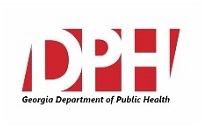February 23, 2021–8:19 p.m.
NEWS RELEASE
 The Georgia Department of Public Health Northwest Health District is ending its nearly yearlong operation of free COVID-19 testing sites effective Thursday, February 25, with the closing of that day’s site in Walker County.
The Georgia Department of Public Health Northwest Health District is ending its nearly yearlong operation of free COVID-19 testing sites effective Thursday, February 25, with the closing of that day’s site in Walker County.
“Over the last two months, we’ve been shifting more and more of our limited public health resources to providing vaccinations,” says Dr. Gary Voccio, health director for the ten-county district, “and in anticipation of an increasing vaccine supply believe now is time to discontinue COVID testing and focus on immunization. There are now other sources in our Northwest Georgia communities for these tests.”
Voccio is quick to point out that the health district’s decision to stop providing free COVID testing should by no means be taken as an indication that the virus is no longer a serious problem in Northwest Georgia. “Although cases and hospitalizations are currently declining, we’re not out of the woods yet,” Voccio explains. “We continue to see community transmission of the coronavirus, new cases, and, unfortunately, COVID deaths still occurring.”
Voccio says the health district has conducted over 150,000 diagnostic tests in Northwest Georgia since opening the first free testing sites early last year in Bartow and Floyd counties. At one time, the health district was providing free testing in all ten of its counties six days a week. The diagnostic test, known as a PCR test, shows if an individual has an active coronavirus infection.
Voccio says that shifting public health resources to immunization will allow county health departments to continue providing more and more vaccinations. “We’re getting the vaccine in peoples’ arms just as quickly as we receive it,” he says, and “could be vaccinating even more people more quickly if we had more vaccine.” Voccio says vaccine supply in Northwest Georgia “remains erratic and inadequate to meet demand” but anticipates delivery and availability to improve over time.
“The immunization program is going to be a marathon, not a sprint,” he says, “and vaccines are eventually going to be available from a variety of providers, not just public health.”